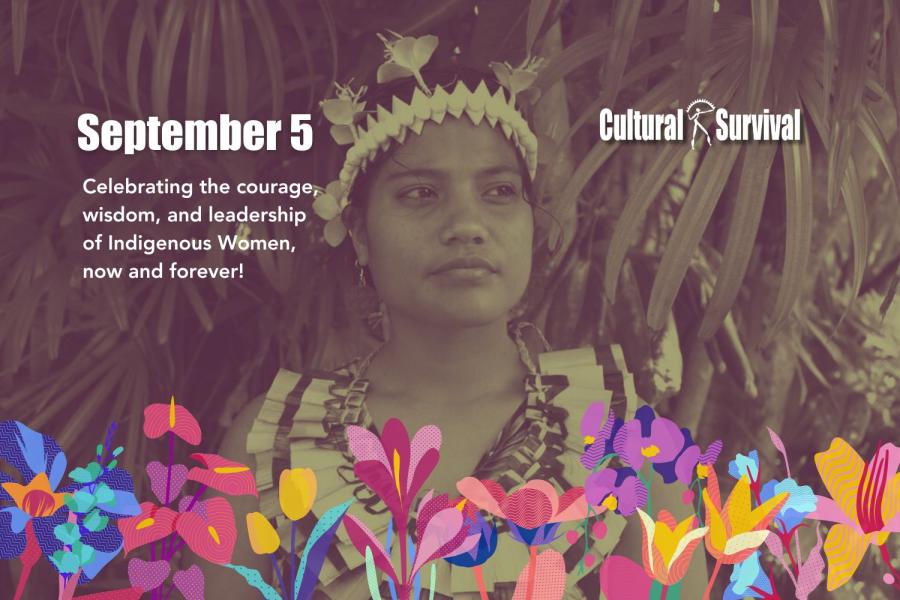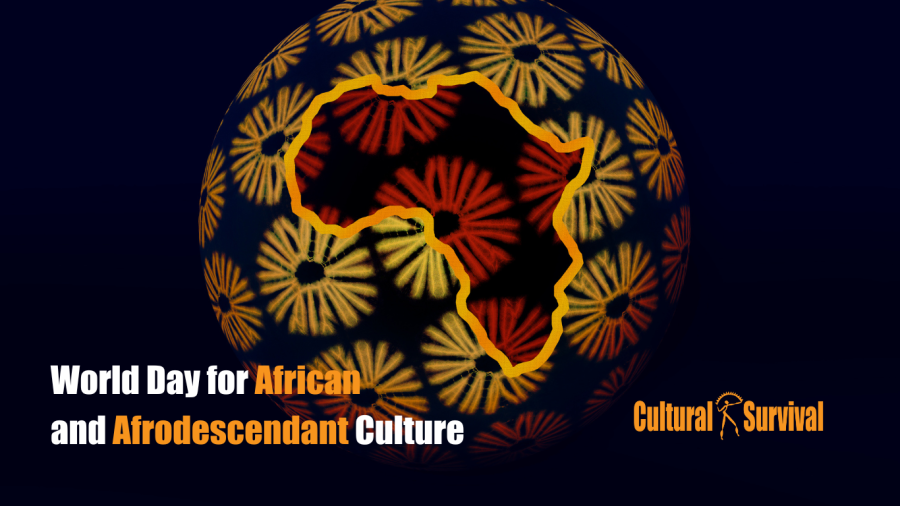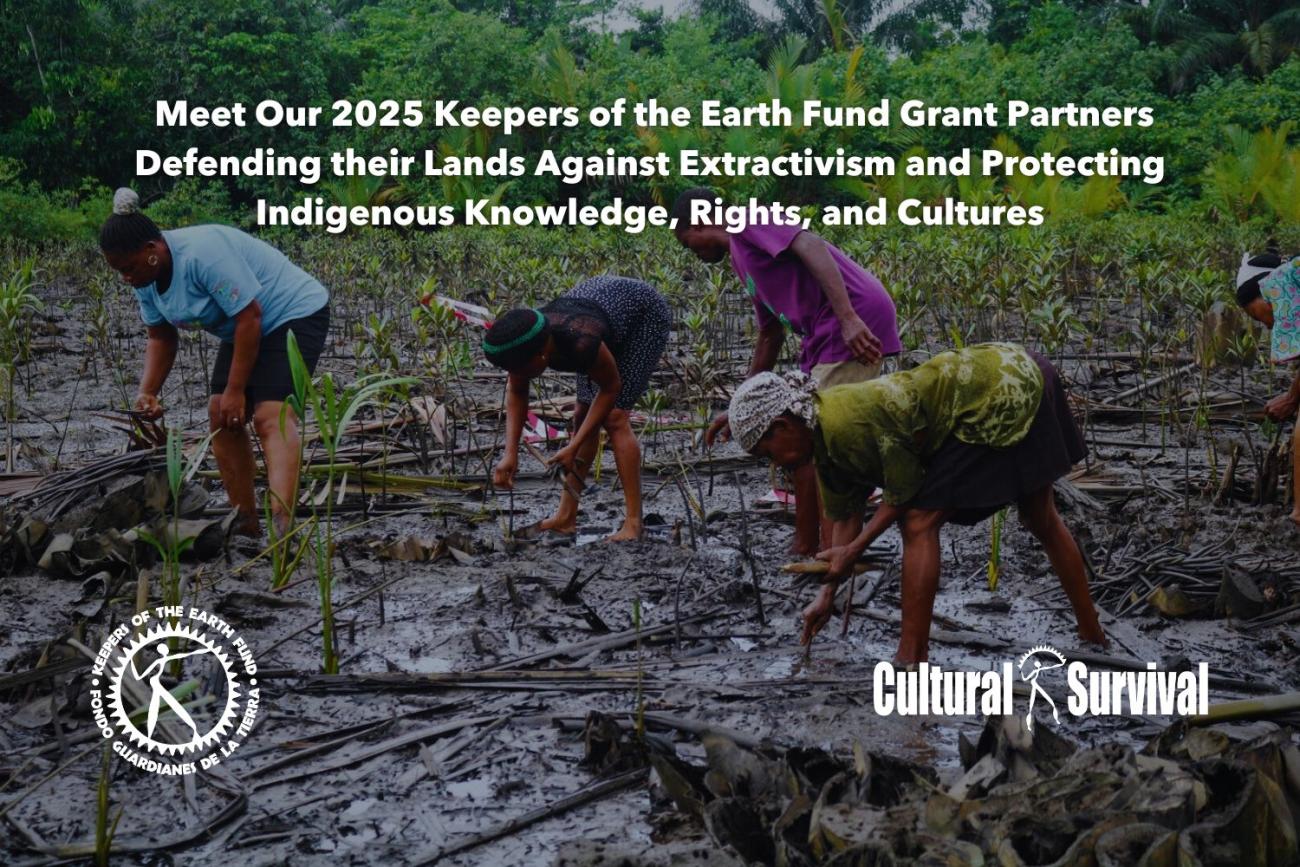
The Keepers of the Earth Fund (KOEF) is proud to announce our 2025 partnerships with Indigenous communities. At Cultural Survival, we value cultivating long-term relationships with our partners.
The Keepers of the Earth Fund is an Indigenous-led fund at Cultural Survival designed to strengthen Indigenous Peoples' advocacy and community development projects globally. Since 2017, we have supported 440 projects in 42 countries through small grants and a wrap-around approach totaling $2,667,147. Grants go directly to Indigenous communities, collectives, organizations, and traditional governments to support projects they designed and in accordance with their Indigenous values. Predicated on the United Nations Declaration on the Rights of Indigenous Peoples, Cultural Survival uses a rights-based approach in our grantmaking strategies to support grassroots Indigenous solutions through the equitable distribution of resources to Indigenous communities.
In 2025, our ninth year of operations, we supported 65 Indigenous projects and collectives for a total amount of $531,000. The funds were sent directly to Indigenous communities, collectives, and grassroots organizations in 26 countries.
Meet our grant partners defending their lands against extractivism and protecting Indigenous Knowledge, rights, and cultures.
Governance for Land Defense against Extractivism
Thirty-five percent of our partners report extractive industries in their territories. This list contains projects related to land and territory defense and the strengthening of Indigenous peoples' own forms of organization. Most of these partners face contexts of extractivism, forcing them to take measures to strengthen their governments and political organizations. Training, meetings, monitoring, and the creation of laws or regulations are planned.
Wechekeche Ka Itrofillmongen, Mapuche, Aymara, Rapa nui, and Lickanantay (Chile)
The association, founded in 2020 with youth from various Indigenous Peoples from Chile, focuses on strengthening indigenous youth leadership. Their project was a gathering for indigenous youth which promoted dialogue among participants and provided technical and self-protection tools in a context of widespread extractivism. The threats they face include gold, copper, and lithium mining; monoculture pine and eucalyptus plantations; hydroelectric dams; desiccating plants; and even the start of underwater marine mining.
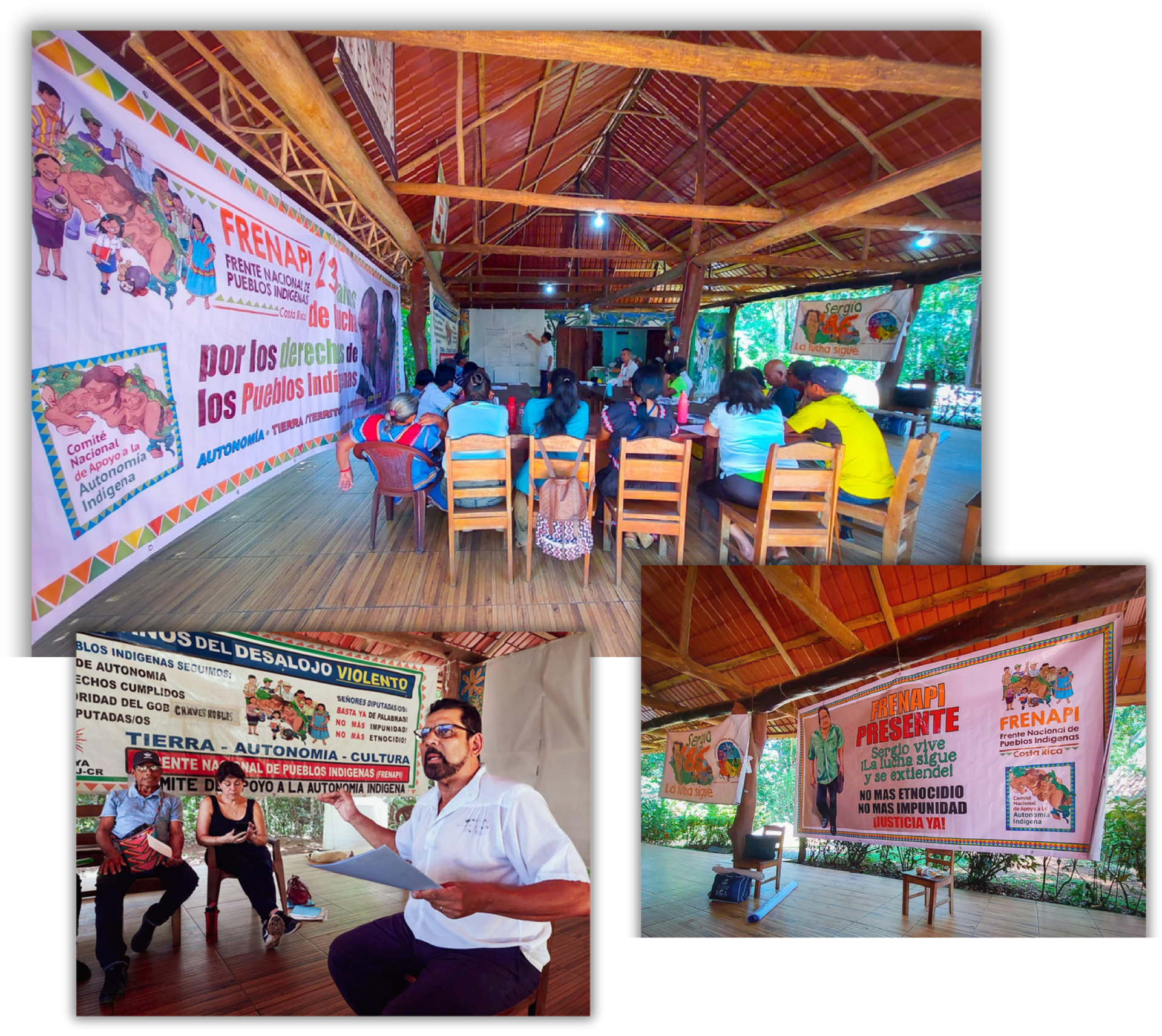
FRENAPI, National Front of Indigenous Peoples, Bribri, Cabécar, Brunkaj, Brörán, Maleku, Chorotega, and Ngäbe-buglé (Costa Rica)
The project proposes holding various types of intercommunity meetings, in accordance with the organization's work agenda. The objective of the meetings is to discuss the current situation of Indigenous peoples in the country and to reach consensus on proposals for the defense of Indigenous rights.
Pataxó Territory Observatory, Pataxó (Brazil)
The project aims to hold various workshops in the Bahia state with the intention of strengthening the work of the Observatory: a workshop on the use of monitoring tools, a legal workshop on indigenous territory monitoring and data security, workshops in schools, and discussion rounds. It also seeks to cover the purchase of equipment, the monitoring process, and opportunities for exchange with other forest guardian groups.
KHOSE, Stichting Key Holders of Sustainable Environment, Arawak (Suriname)
This project builds on previous environmental and youth empowerment initiatives within the Arawak community in Wanica. The objective is to empower Indigenous youth and women in Kabalebo to resist extractive industries through legal education, land rights advocacy, and environmental protection.
FITH, Tawahka Indigenous Federation of Honduras, Tawahka (Honduras)
This organization composed of indigenous communities in the Gracias a Dios department proposes a project that seeks to support the indigenous women of the Tawahka Asangni Biosphere Reserve, Patuca River. The objective is to strengthen the leadership of Tawahka women by promoting their active, assertive, and purposeful participation through training workshops based on cultural knowledge, understanding, and critical reflection.
San Lucas Community, Ñuu Savi (Mexico)
In the stage of Guerrero, the project proposes to conduct community leadership training workshops to defend the territory, water, and communities against illegal logging and mining. Secondly, it is intended to conform teams of forest guardians in each community. Its members, elected in assembly, will carry out surveillance to safeguard the territory. Operating regulations will be written for these teams, supported by the community authorities.
CHIRP, Indigenous Research Project, Nisenan (United States of America)
This project aims at creating a community plan and governing document that will be used for tribal community living together after their recent success recovering their land, Yulića. The project will encompass the full process, from developing a digitally council space that supports tribal communication, to ensuring legal counsel to look over the final document to check for legality and compliance with the Tribal Constitution.
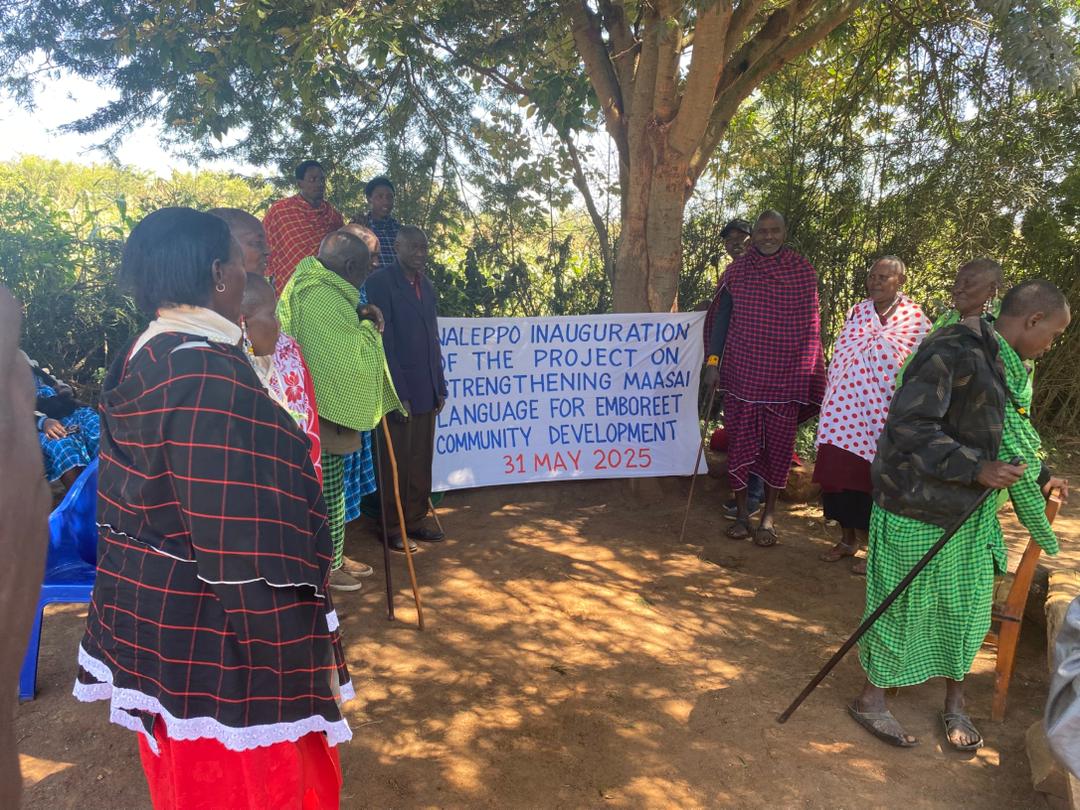
NALEPPO, Natural Resources, Livestock, Education, People, Production, and Other community livelihood options, Maasai (Tanzania)
The project proposes hosting four seminars on traditional Masaai knowledge. Two of them will focus on language and culture revitalization, including governance and conflict resolution practices. The remaining two seminars will delve into traditional resource management and environmental protection. The project has a special interest in gender balance and intergenerational transfers of knowledge.
Sassafras Earth Education, Wôpanâak (United States of America)
Sassafras Earth Education is composed of Wôpanâak members and is led by their communities' representatives. This project seeks to restore and maintain the wetu (traditional Wôpanâak dwelling) at Nôepe (Martha’s Vineyard), engaging community members from all ages in the process and ensuring it remains a functional, cultural, and educational space for Indigenous youth and the broader community.
Unist'ot'en Healing Centre, Wet’suwet’en (Canada)
The Unist'ot'en Healing Centre Society represents the Dark House of the Gilseyhu clan of the Wet'suwet'en Nation in British Columbia, serving approximately 131 Unist'ot'en members within a nation of 2,144 people. Founded in 2009 as a resistance and reoccupation camp in response to colonial impacts and the authorization of the Coastal Gas Link pipeline, the community faces ongoing threats to its lands and traditional governance. Its primary project seeks to identify and promote Wet'suwet'en traditional law, develop internal protocols for its implementation, and work with legal experts to defend Aboriginal rights to their territories. Additionally, it strengthens community knowledge of ancestral law through intergenerational land-based and healing programs.
Seven Indigenous defenders: Quechua, Ñuu Savi, Miskitu, Guaraní, Mapuche, and Pataxó (from various countries)
Additionally, seven grants were sent to defenders in danger or in emergency situations, who face threats to their lives or physical integrity due to their work defending land, water, and Indigenous rights. The funds were used to pay for emergency needs such as transportation, lodging, food, technical equipment, and medical care.
Keepers of the Earth Fund